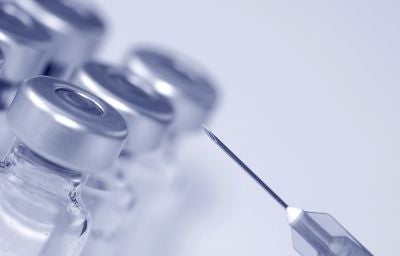People over 60 who were given a vaccine against shingles, a painful rash that arises from a dormant chicken pox virus, saw a 55 percent lower risk of developing the condition, a study said Tuesday.
Nearly one in three people risk acquiring shingles, also known as herpes zoster, at some point in their lives.
Shingles can linger for weeks or years, causing blistering rashes and body pain mainly in older adults and those with weak immune systems.
A vaccine was approved by the US Food and Drug Administration in 2006 but only about 10 percent of the US population is currently taking it, experts said.
The study, published in the Journal of the American Medical Association, took a retrospective look at health data from 300,000 people in California from 2007 to 2009.
By comparing how many people got shingles in vaccinated versus unvaccinated populations, researchers determined that the vaccine resulted in a 55 percent lower risk.
The risk appeared to stay lower in populations over age 75, a group that was previously found by a clinical study of 38,000 patients not to glean much benefit from the vaccine.
"Our study shows the vaccine has the potential to prevent tens of thousands of cases of shingles, a painful, lingering disease," said study lead author Hung Fu Tseng, a research scientist with the Kaiser Permanente Department of Research and Evaluation in Pasadena, California.
"We suggest clinicians follow the CDC's (Centers for Disease Control and Prevention) recommendations to talk to their patients about the option of vaccination against this serious condition."
Researchers said more than one million cases of shingles are recorded annually in the United States.
Zostavax, made by Merck, is licensed for use in people 60 years old and older to prevent shingles, according to the CDC.
"The older a person is, the more severe the effects of shingles typically are, so all adults 60 years old or older should get the shingles vaccine," the CDC said.
ksh/mac
Subscribe to Independent Premium to bookmark this article
Want to bookmark your favourite articles and stories to read or reference later? Start your Independent Premium subscription today.


Join our commenting forum
Join thought-provoking conversations, follow other Independent readers and see their replies